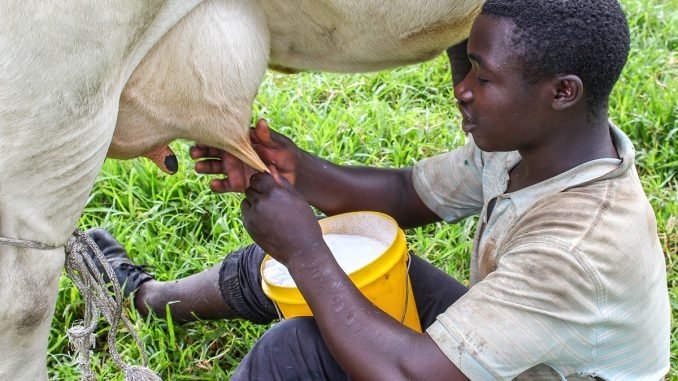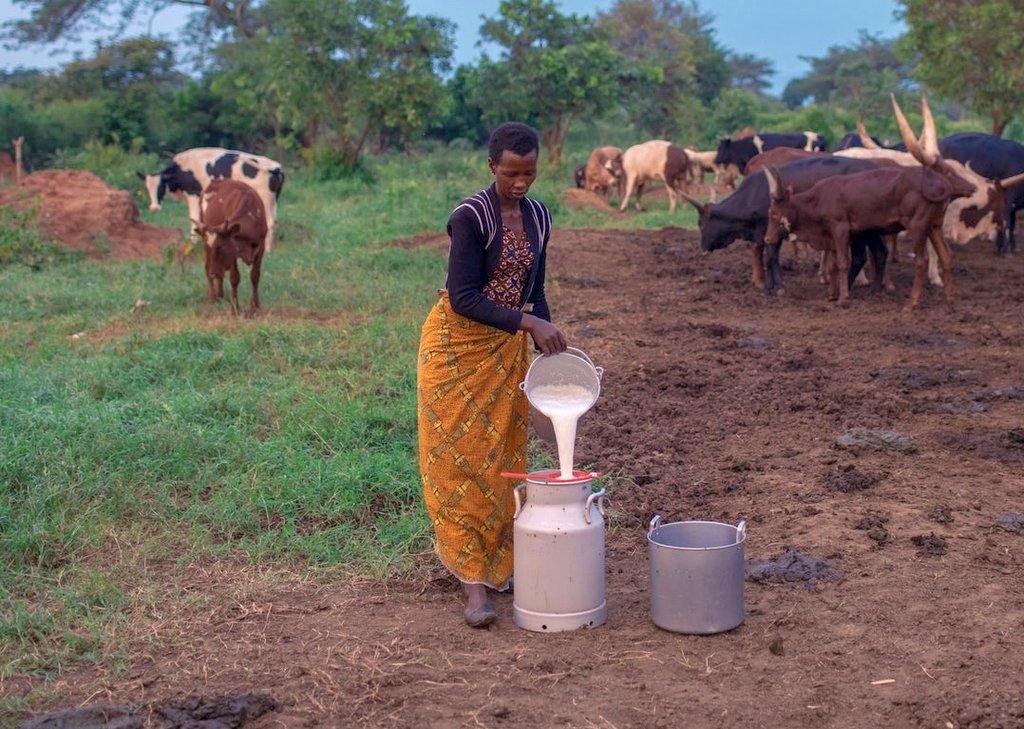
Fort Portal, Uganda | URN | The Dairy Development Authority (DDA) is concerned about the continued adulteration of milk in Uganda – posing health, quality and standard challenges.
Farmers reportedly add water and maize flour among others in a bid to increase the quantity of milk and fetch higher prices. Water is continuously added from the process of milking to the point of selling it to the final consumer.
The authority notes that milk adulteration lowers the quality and at times the milk goes bad before reaching the final consumer. Speaking at the June dairy month celebrations in Fort Portal, Dr Moses Ahimbisibwe, the regional manager of DDA says whereas the body has taken serious measures to ensure only good and quality dairy products are on the market, farmers resort to adulteration of milk in a bid to get more money since the cost of farming inputs is high.
He also says that they are concerned about the farmers who fail to follow up on the products from the farm that end up in the market. Ronald Kwikiriza the chairman of Tooro Dairy Cooperative Society says that the adulteration of milk is a bad practice since it contaminates the milk. He says that vendors who engage in the practice do not even care about the quality of water.

Kwikiriza wants the government to revive cooperatives to enable farmers to control the inflows and outflows of the dairy products as well as collective bargaining related to dairy products and policies.
Read Also: Trade committee wants all energy drinks in Uganda tested for adulteration
George William Oroma, the project manager of the integrated smallholder program at SNV which is focused on improving the quality of milk products in the Rwenzori region says that milk contamination caused by drugs administered to animals is a key concern that is affecting the dairy industry. He advised farmers to wait for the animals to heal before being milked to avoid putting the lives of the consumers at risk.
In March, the government designed a new system of ensuring improved standards of milk, especially for raw or unprocessed milk on the market. This will replace the open system currently where the milk is vended from jerrycans or aluminium cans, which increases the vulnerability of the product to adulteration with either water or unapproved preservatives.



